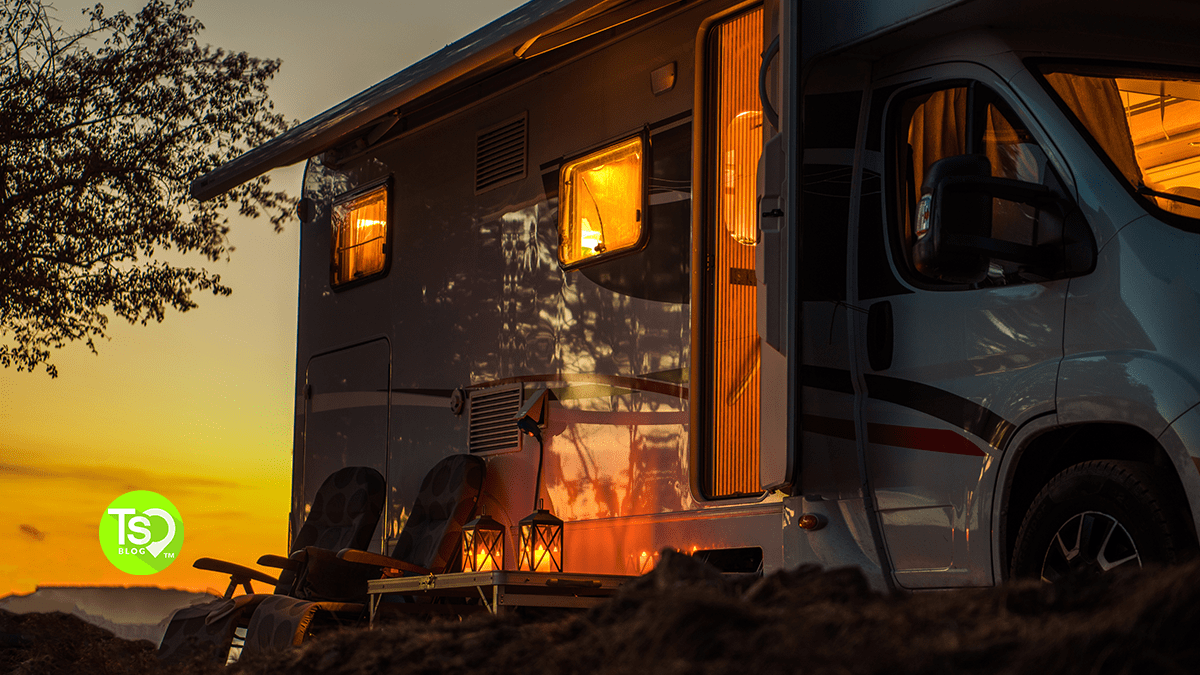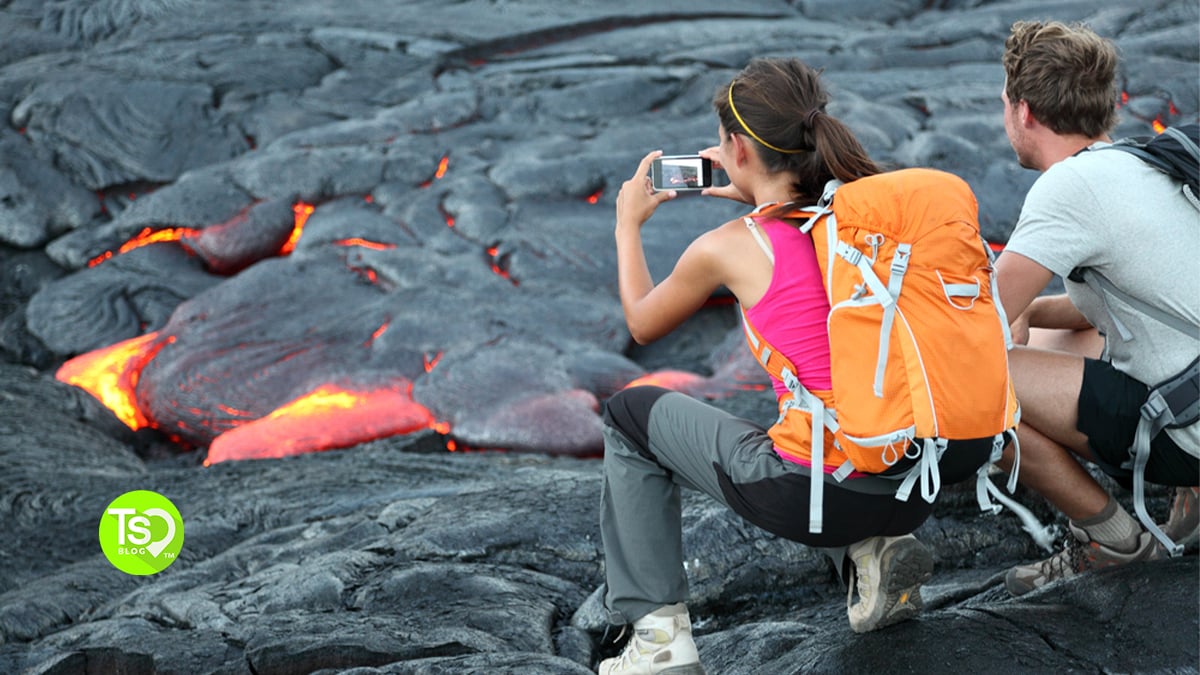Traveling and even living in a recreational vehicle (RV) has exploded in popularity over the past few years. While RVing has been popular for a while, the pandemic kicked RVing into high gear. A survey by the RV Industry Association in 2020 reported that 20% of respondents became more interested in RVing due to the pandemic. With travel shut down or restricted, people turned to camping and traveling in RVs as a way to get out while remaining socially distanced.
Although the interest in RVing is high, not everyone can afford to purchase their RV. Especially when you add in the cost of maintaining an RV, pulling one, and potentially storing one, RV ownership isn’t feasible for most.
The good news is, nowadays, you can rent just about anything, and RVs are no different. Just like short-term vacation homes and cars, you can also rent an RV and get the best of both worlds.
Read on for an overview of everything you need to know to rent an RV, including the types, cost to rent an RV, where you can rent an RV, and when you should consider renting an RV.
Types of RVs
The first question you may have regarding RVs is whether you need a special license to drive/tow one.
Luckily, the general rule is that you do not need a special license to drive/tow an RV weighing less than 26,000 pounds or less than 40 feet. Even better, most RVs fall under that weight and length, especially RVs that you’d be potentially renting.
Any restrictions or special license requirements will be disclosed during the rental process when you rent an RV, so you shouldn’t have to worry. However, if you’re concerned or traveling out of state, you can check with the state DMV for special licensing requirements.
The second question you may have when renting an RV is what the different types are? Generally speaking, there are two types of RVs: drivable and towable. Each is discussed in detail below.
Drivable (Motorhomes)
The first type of RV is drivable, more commonly known as motorhomes. There are three different classes of drivable RVs: Class A, B, and C.
Class A
A Class A motorhome is the largest drivable RV. They resemble a bus and are typically 30 to 40 feet long. They are also considered top-of-the-line amongst RVs and typically feature full bathrooms, entertainment centers, and spacious living areas.
Class A motorhomes are popular for retirees or others who travel long-term or live in an RV instead of a permanent residence. However, they come at a hefty price of well over $100,000.
Class B
Class B motorhomes are more commonly known as van campers because these RVs are built on a van chassis with a raised roof. Class Bs are typically the smallest drivable RV but still have a bathroom, convertible bed, and basic kitchen necessities.
What Class B lacks in size, it makes up for in mobility. They can be parked almost anywhere and are great for those who enjoy a minimalist lifestyle. They are also more fuel-efficient and come at a more reasonable price tag, with most falling between $40,000 and $70,000.
Class C
Finally, the Class C motorhome is what most think of when they think of a drivable RV. These motorhomes fall between Class B and A in terms of space and size. Typically, they build them on a truck chassis with a cab overhang.
These motorhomes are a great compromise of space and amenities for families or those who want to spread out without paying a fortune. Depending on size and amenities, a new Class C will cost between $50,000 and $90,000.
Towable
In addition to drivable RVs, there are several options for towable RVs that will require the use of a truck or SUV.
Fifth Wheels
Fifth wheels are the largest of the towable RVs and can range from 25 to 45 feet. There is a vast range of styles and floorplans, but most feature multiple slide-outs and bi-level living space with full kitchens and bathrooms.
You’ll need a truck with gooseneck towing capacity to tow a fifth-wheel trailer, and they’ll also cost you more with an average range from $20,000 to $50,000.
Travel Trailers
Travel trailers are the most popular RV option, combining affordability and flexibility. They range from 10 to 35 feet, have almost unlimited layout and amenity options, and can be towed by a range of vehicles depending on size.
Travel trailers range from $10,000 to $40,000 on average, depending on size, layout, and options.
Folding/Popup Trailers
A popup trailer combines tent camping and RVing in one compact unit. The main body of the RV folds out and up, and slide-outs allow you to create additional space. Beds, a foldable table, and a basic kitchen are typical features, but upgrades include bathrooms and other amenities.
Popup trailers can be easily towed with an SUV, stored in a driveway, and are affordable at between $9,000 and $20,000.
Campers
A camper is the smallest RV option and is economical for a couple or small family to travel. Campers are designed to be mounted on the bed of a truck and are highly compact. Most only include the basics. However, what you lack in size, you’ll make up with flexibility, as you could also tow a trailer or boat behind the truck.
A camper is also the cheapest option, with average prices ranging from $5,000 to $18,000.
Best Places to Rent an RV
Options to rent an RV have grown over the past decade, and there are now both peer-to-peer and company options.
Peer-to-Peer
The best peer-to-peer options for renting an RV are RVshare and Outdoorsy.
RVshare
RVshare is like the Airbnb of RVs and allows you to search available RVs in each state across the U.S. If you’re looking to rent an RV, search by city or state, as well as the type of RV you’re looking for. You’ll see a range of options based on your specifications, and you can rent based on what best meets your needs.
Insurance is included in the fees, and both owners and renters have up to $1,000,000 liability coverage and up to $300,000 comprehensive coverage. You can learn more about the insurance offered by RVshare here.
Outdoorsy
Outdoorsy has a very similar business model to RVshare and is also an option for international renters. Listings are arranged by city, and owners and renters are offered similar roadside assistance and insurance coverage.
Rent an RV from a Company
If you’d prefer working with a business and not private owners, then there are plenty of options for renting an RV directly from a company. The three best options for renting an RV with a company are Cruise America, El Monte RV, and Camper Travel Bookings.
Cruise America
Cruise America is probably the most well-known place to rent an RV. You’ve likely seen several Cruise America RVs on the road as they’re hard to miss with their advertising painted on the side of the vehicle.
While the most popular company option, Cruise America has limitations in that they only offer Class C RV and camper rentals, but they provide a range of options within that class. However, with 129 locations throughout the U.S. and Canada, you’re sure to find a location near you or your destination.
El Monte RV
El Monte RV is similar to Cruise America but has fewer locations throughout the U.S. Additionally. They are limited in that they only rent Class A and C RVs. However, El Monte RV also offers one-way rentals along with short and long-term temporary housing solutions, which may appeal to some looking to rent an RV.
Camper Travel Bookings
The last place to rent an RV on this list is Camper Travel Bookings, which is included due to its international travel destination rental options. Renters can choose a motorhome or campervan in the U.S., Canada, Australia, New Zealand, South Africa, or Europe.
How Much Does It Cost to Rent an RV?
Now that you know your options for renting an RV and where you can get started renting, you’re likely wondering how much it costs to rent an RV.
Like anything, the rental cost will depend on size, amenities, and time of year/location, as well as whether you’re renting from a private party or company. While you’ll need to research rental costs based on your budget and desired RV type, some general guidelines on the price to rent an RV are found below.
- Class A: $175 to $275 per night
- Class B: $100 to $200 per night
- Class C: $150 to $200 per night
- Fifth Wheel: $60 to $150 per night
- Travel Trailer: $50 to $125 per night
- Pop Up Trailer: $50 to $100 per night
Along with the nightly cost to rent an RV, be prepared to factor in other expenses such as a pay-per-mile charge and gas, taxes, and cleaning fees. Sometimes these fees are included in the rental, but other times they may not be.
Some Helpful RVing Apps
As you can see, while renting an RV is generally cheaper than buying your own or paying for other accommodations, there are a lot of additional costs that can quickly add up.
If you’re thinking about RVing, renting, or not, check out these apps to help you save a bit of money.
Gasbuddy
Gasbuddy is a free app that shows local gas prices in the U.S. and Canada. Using the app, you can find the cheapest gas in the area you’re traveling in and save some money on gas. You can even filter your search by brand and type of gas.
FreeRoam
FreeRoam is an app containing information on free and paid RV camping locations and overnight parking throughout the U.S. The app also provides reviews and ratings on various metrics such as cell reception and safety.
Boondockers Welcome
This membership app allows you to find and stay at thousands of host locations across the country. Pay the $50 yearly membership, and you’ll have access to thousands of people willing to let you park your RV on their property for free.
Speedcheck
The Speedcheck app lets you test internet speed as well as offers the closest open Wi-Fi connections.
National Park Service
If you’re into RVing, then you’re probably also into National and State Parks. One of the best apps for preparing to explore our nation’s natural wonders is the National Park Service app. The app contains everything you need to know about the over 420 National Parks and Monuments across the country.
When Does It Make Sense to Rent an RV?
Now that you know all the basics for renting an RV, let’s talk about when it makes sense to rent an RV.
First, renting an RV is perfect for those who don’t have the funds to purchase an RV or don’t have a place to store one.
Even if you do have the money to buy your RV, and while it may be tempting to do so, the reality is that most RVs sit largely unused throughout the year. Thus, another reason to rent an RV is if you only want to use it intermittently or if you’re not sure how much you’ll use it. If you find you love the RV life and want to do it often or for extended periods, you can always purchase your own down the line.
The last primary reason to consider renting rather than buying is to take certain types of trips. For example, RVs are great for hunting trips or traveling to National Parks that don’t have other forms of accommodations nearby.
Final Thoughts
You can rent almost anything nowadays, and RVs are no different.
If you’re interested in traveling in an RV, or possibly even living in one, consider renting an RV instead of buying to save money and experience all that road trips have to offer.
Where will your adventures take you next?
This post originally appeared on Savoteur.



